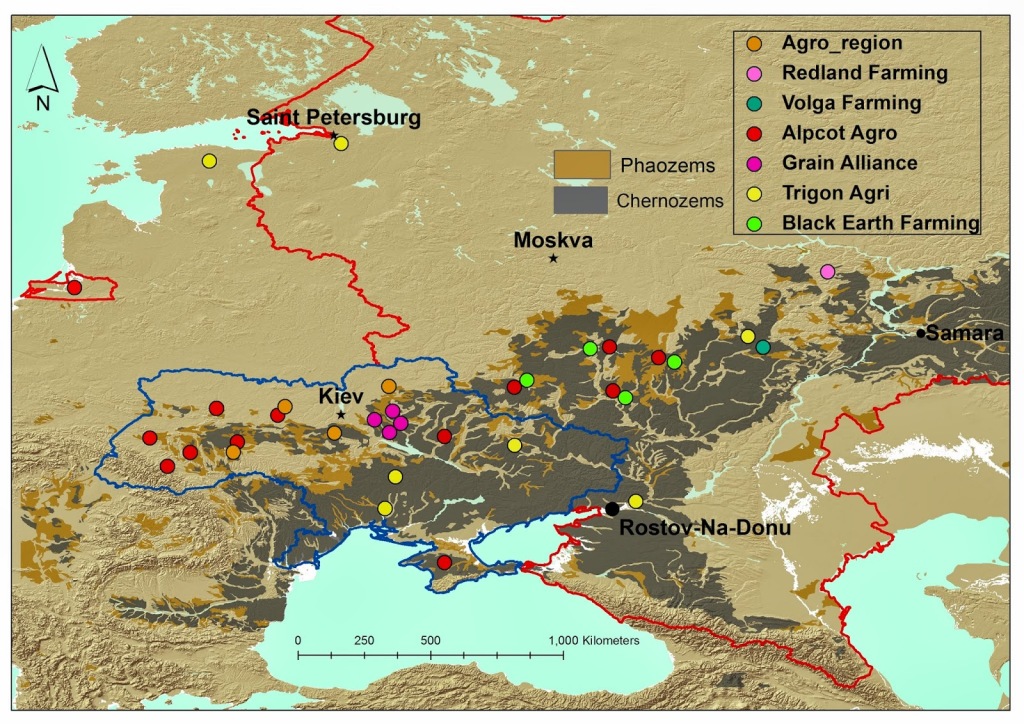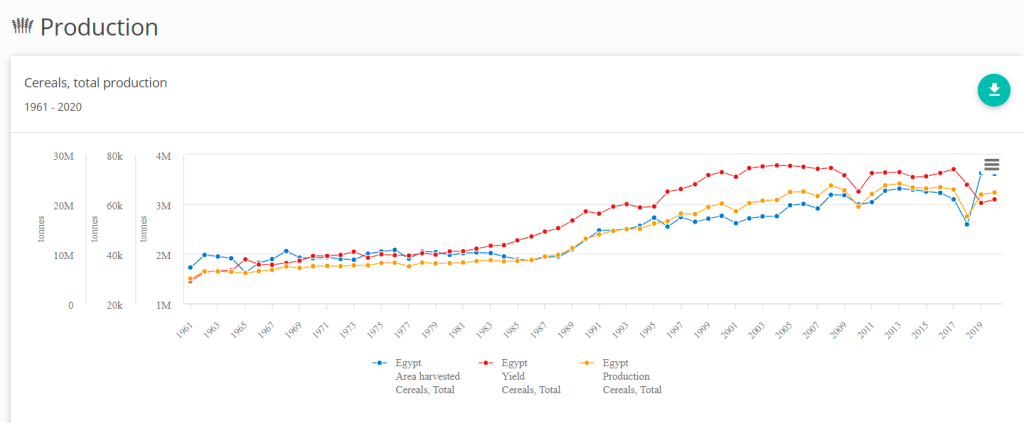Egypt is alarmed. And rightly so. A war in one of the grain baskets of the world, Ukraine, will affect us all but Egypt, and Turkey, will be hit even harder than many other countries. And they know it. According to Reuters, “Egypt, often the world’s top wheat importer, is working on a plan to buy wheat from other regions rather than Russia and Ukraine … “There are 14 approved countries Egypt could import wheat from, some of which are outside Europe” … Russia and Ukraine are frequently the top exporters of wheat to Egypt, making up around 50% and 30% of its wheat imports in 2021“. But this will not be enough as in the short run, i.e. two years, supply is more or less set. Al Jazeera provides us with an infographic: As we can see, Egypt relies on Russian and
Topics:
Merijn T. Knibbe considers the following as important: Uncategorized
This could be interesting, too:
tom writes The Ukraine war and Europe’s deepening march of folly
Stavros Mavroudeas writes CfP of Marxist Macroeconomic Modelling workgroup – 18th WAPE Forum, Istanbul August 6-8, 2025
Lars Pålsson Syll writes The pretence-of-knowledge syndrome
Dean Baker writes Crypto and Donald Trump’s strategic baseball card reserve
Egypt is alarmed. And rightly so. A war in one of the grain baskets of the world, Ukraine, will affect us all but Egypt, and Turkey, will be hit even harder than many other countries. And they know it. According to Reuters,
“Egypt, often the world’s top wheat importer, is working on a plan to buy wheat from other regions rather than Russia and Ukraine … “There are 14 approved countries Egypt could import wheat from, some of which are outside Europe” … Russia and Ukraine are frequently the top exporters of wheat to Egypt, making up around 50% and 30% of its wheat imports in 2021“. But this will not be enough as in the short run, i.e. two years, supply is more or less set.
Al Jazeera provides us with an infographic:

As we can see, Egypt relies on Russian and Ukrainian wheat production. Turkey is quite dependent on ‘Black Earth’ grain, too. Black earth, or ‘Chernozem’, is a type of soil which is thus fit for agriculture that the soil itself is sometimes commodified, sold and transported. Below, we see that Chernozem soils cover quite a stretch of Ukraine as well as the Russian federation. When writing this blog, I wasn’t searching for a map also showing all kind of agrocompanies, but it is of interest that a capitalist agricultural company like ‘Trigon Agri‘ operates agricultural production facilities in Russia as well as Ukraine. Such a company might siphon off land rents (bad) – it might also introduce novel production technologies (good). Note that Ukrainians have been wise enough not to sell their land to oligarchs, even when quite recently a land reform has been enacted (this is always very much about the details. Agricultural land reform can be bad (a land grab) but it can also be pivotal to positive economic and even democratic development of a country I do not know enough about the details to have an opinion about this one). By now, this is however all trumped by the war.

Clearly, Turkey as well as Egypt are and and, as the wheat and grain market is a truly international market, the whole world is quite dependent on the Chernozem harvests. Here, you can find FAO statistics and reports showing that at the moment global production of grains can barely keep pace with growing global demand. What happens when Russian and Ukrainian production falters? The problem with is that agricultural production time. Nowadays, and in fact since over a century, grain production requires specialized seeds and strains which are as much as possible resistant to all kinds of diseases and which respond well to gifts of fertilizer (chemical or otherwise). Developing these is an ever ongoing war as diseases are like the Borg: they adapt (here my favorite article about this). Even the short term production chain is over two years long: in year one the specialized seeds are produced while in year two the ‘normal’ harvest grows. The Russian Duma has, wisely, already asked for additional investments in Russian agriculture – but they are in a sense already too late, as the acreage needed for the seeds of the winter grain harvest of 2022-2023 have already been sown. The long term supply chain (considering global population growth and climate change we have to develop strains which are more heat and drought resistant) might be as long as 15 years. Summary: the Ukrainian war threatens agricultural production in one of the most fertile parts of the entire earth which, considering inelasticity of production in the next two years, will jack up prices. I can pay higher prices for croissants. Many people can’t pay higher prices for flour and (another very important Ukrainian product) vegetable oil. Which will result in a growing number of hungry, less healthy, shorter and less resilient people. Sorry, that’s the way it goes. Hunger leaves lasting marks, which even can span generations as less healthy women give birth to less healthy children. No links here, but if wanted I will provide dozens in the comments.
So, what should Egypt and Turkey do? Increase home production of grains? Egypt hasn’t managed to this this for the last ten years – but the government tries to diminish dependency on imported grains from 50% to 35%. Which, indeed, leaves 35% while 35% in five years is quite a bit more as today as the population of Egypt is growing quite fast while prices of seed grains are already increasing. Also, importing more from other countries is quite burdensome as the short term production chain last two years and a country like Turkey wants to diversify imports, too.

Summary: not just the Ukrainians will suffer, but the poor in Egypt, Turkey and elsewhere, too. Aside: will grain producers in France be happy when Ukraine joins the EU? Just asking.
Anyway: let’s dump all kind of stupid mythologies about ‘Mother Russia’ or ‘The west’ and replace them with stories about the global importance of chernozem soils. The war in Ukraine is stupid and evil, rivalling the Iraq war, the First World War and many others. If the people living in Donetsk, Luhansk and Crimea oblasts want to be part of the Russian bureaucracy – let them. If the people living in Murmansk oblast and the Republic of Karelia (both part of the Russian federation and inhabited, according to official statistics, by a majority of people considered to fit into the bureaucratic category ‘ethnic Russians’) want to be part of Finland – let them. I know, the chance of any kind of plebiscite in those areas anytime soon is limited. But we’ll have to fight mythologies. Soil, you can touch and taste and even commodify. ‘Mother Russia’ and ‘the West’ are just figments of the mind. Figments which are all too real, I agree. That’s why they have to be deconstructed – the very thing which Putin opposes.
